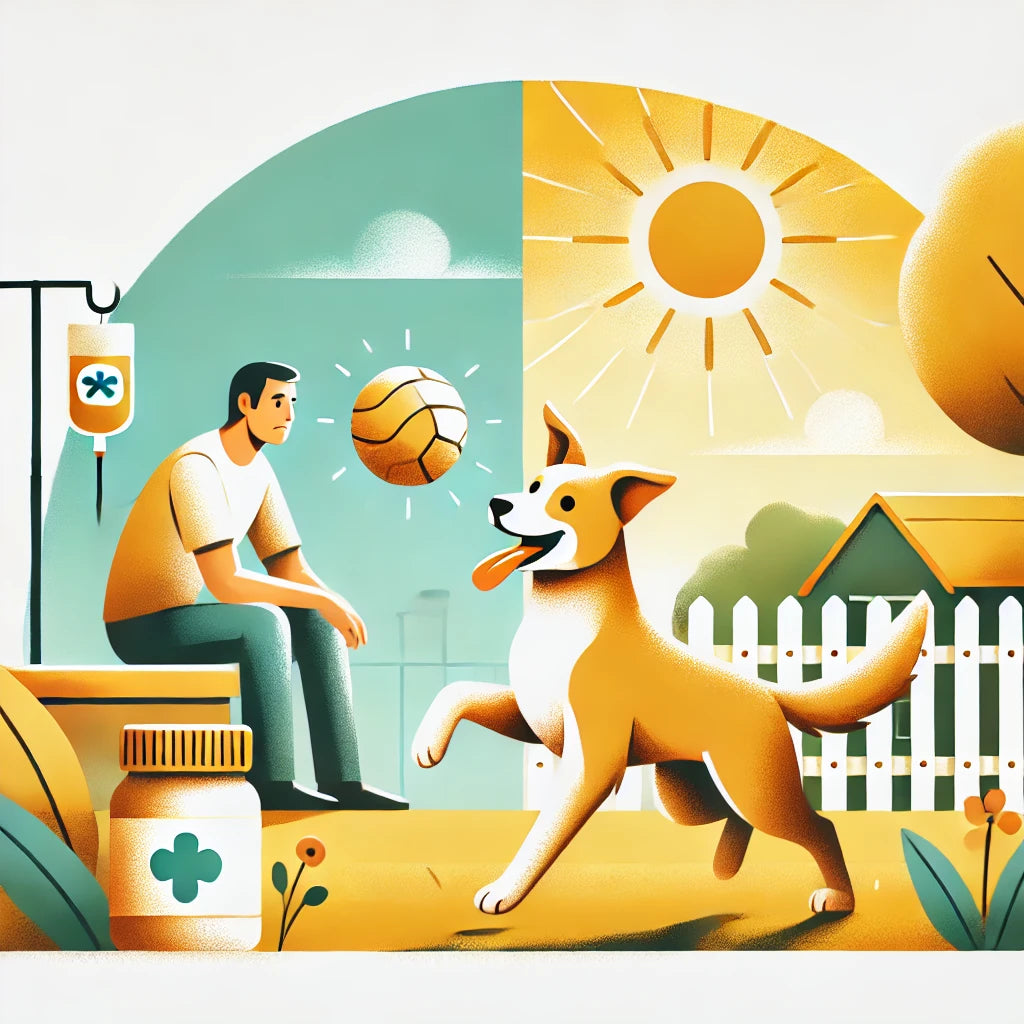Cancer. The word alone is enough to send shivers down any pet owner’s spine. But what if your dog has been diagnosed with cancer and still acts completely fine? They run, play, eat, and wag their tail as if nothing has changed. This paradox leaves many owners bewildered. How can a dog with such a serious diagnosis seem so normal?
The truth lies in the remarkable resilience of our canine companions. Dogs experience and express illness differently than humans, often masking pain and discomfort until the very end. Let’s explore why this happens and what it means for their care.
Why Do Dogs With Cancer Act Fine?
1. Instinctual Survival Behavior
In the wild, showing signs of weakness makes animals vulnerable to predators. This instinct persists in domesticated dogs, leading them to hide pain or illness, even from their loved ones. A dog acting fine despite cancer may be a survival strategy encoded deep in their DNA.
2. Gradual Disease Progression
Cancer doesn’t always manifest severe symptoms immediately. In many cases, it progresses slowly, and early stages may not impact energy levels or behavior significantly. For instance, a dog with a small, localized tumor may feel no discomfort at all.
3. Canine Pain Tolerance
Dogs generally have a higher pain tolerance than humans. What might seem unbearable to us could be manageable for them. This doesn’t mean they aren’t affected—it simply means they are better at coping.
4. The Joy of Living in the Moment
Unlike humans, dogs don’t dwell on their diagnosis. They focus on the present, savoring every meal, every walk, and every cuddle. This ability to live in the moment allows them to continue enjoying life despite their illness.
The Double-Edged Sword of a Symptomless Disease
While it’s a relief to see your dog happy and active, this can also make it challenging to monitor their condition or decide when to take action. Cancer symptoms can sometimes remain hidden until the disease progresses to an advanced stage.
Common Hidden Symptoms of Cancer in Dogs:
- Subtle weight loss
- Slight changes in appetite
- Increased thirst
- Occasional lethargy after activity
- Small, unnoticed lumps
These signs can be easily missed when your dog seems fine, making regular check-ups and vigilance critical.
What You Can Do for a Dog With Cancer
1. Create a Holistic Care Plan
Work with your veterinarian to develop a comprehensive treatment plan that aligns with your dog’s specific type of cancer and overall health. Consider combining traditional treatments like surgery or chemotherapy with holistic approaches such as:
- Nutritional therapy: Anti-inflammatory diets with high-quality proteins and omega-3 fatty acids.
- Herbal supplements: Ingredients like turmeric, Chuanxiong, or CBD oil may help with inflammation and pain management.
2. Stay Ahead of the Symptoms
Even if your dog acts fine, subtle changes in their behavior, weight, or energy levels can indicate the progression of their condition. Keep a journal to track:
- Appetite and eating habits
- Bathroom routines
- Activity levels
- Any new lumps or growths
3. Enrich Their Quality of Life
Focus on maximizing the time you have together. Dogs with cancer often thrive when they are surrounded by love, fun activities, and mental stimulation. Try:
- Gentle play sessions to keep them active without overexertion
- Puzzle toys to keep their minds sharp
- Extra cuddles and attention to reassure them
4. Support Their Immune System
Cancer often compromises a dog’s immunity. Immune-supporting supplements or probiotics can help your dog maintain their strength and fend off secondary infections.
The Emotional Journey of Owning a Dog With Cancer
For pet owners, balancing hope with realism can be emotionally taxing. Seeing your dog act fine might create moments of denial—after all, they look okay, right? It’s important to acknowledge and process your feelings while remaining proactive about their care.
Tips for Coping:
- Focus on the Positive: Celebrate the small victories, like a tail wag or a good appetite.
- Seek Community: Join online support groups for pet owners managing canine cancer.
- Stay Informed: Research your dog’s type of cancer and treatment options to feel empowered.
When the Time Comes to Say Goodbye
If your dog’s cancer eventually progresses, they may no longer act fine. This can be a painful transition, but it’s also an opportunity to provide them with a peaceful and dignified goodbye. Remember, dogs live for the joy of being with you—they trust you to make the best decision when the time comes.
Signs that your dog may no longer be comfortable include:
- Difficulty breathing
- Persistent vomiting or diarrhea
- Unmanageable pain
- Loss of interest in food or activities
Discuss euthanasia options with your veterinarian to ensure your pet passes peacefully.
A Lesson From Our Canine Heroes
Dogs with cancer remind us of life’s most valuable lesson: live in the moment. They teach us to find joy even in difficult circumstances, to savor simple pleasures, and to cherish every day we have together. While their resilience might mask their illness, it also highlights their incredible strength and love.
Your dog may act fine, but don’t let that fool you into complacency. Stay proactive, compassionate, and attentive. Together, you can make this chapter of their life as joyful and fulfilling as every moment they’ve shared with you.

